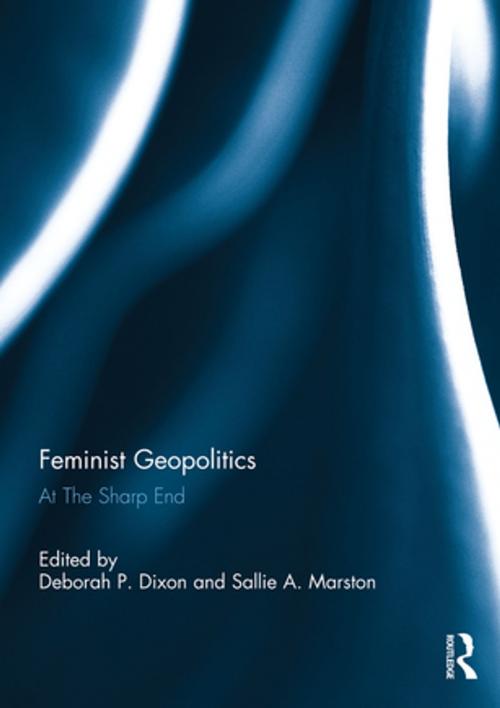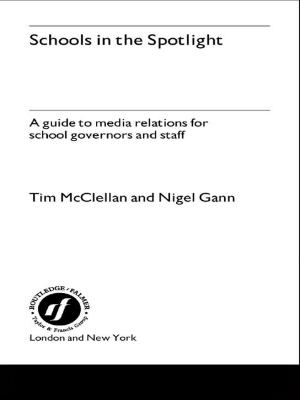Feminist Geopolitics
At the Sharp End
Nonfiction, Social & Cultural Studies, Social Science, Gender Studies, Political Science| Author: | ISBN: | 9781134916535 | |
| Publisher: | Taylor and Francis | Publication: | September 17, 2016 |
| Imprint: | Routledge | Language: | English |
| Author: | |
| ISBN: | 9781134916535 |
| Publisher: | Taylor and Francis |
| Publication: | September 17, 2016 |
| Imprint: | Routledge |
| Language: | English |
Building on a trans-disciplinary, feminist project that foregrounds the bodies of those at the ‘sharp end’ of various forms of international activity, such as immigration, development and warfare, the chapters included in this book cover a variety of sites, concerns, and hopes. These range from the fraught geopolitics of marriage and birth in Ladakh, India, to the fate of detained migrant children in the U.S., and from the human rights abuses of women and children in Uzbekistan to the body politics of aid workers in Afghanistan. The collective aim is to expose the force relations that operate through and upon those bodies, such that particular subjectivities are enhanced, constrained, and put to work, and particular corporealities are violated, exploited, and often abandoned. Oriented around issues of security, population, territory, and nationalism, these chapters expose the proliferating bodies of geopolitics, not simply as the bearers of socially demarcated borders and boundaries, but as vulnerable corporealities, seeking to negotiate and transform the geopolitics they both animate and inhabit.
This book was originally published as a special issue of Gender, Place and Culture: A Journal of Feminist Geography.
Building on a trans-disciplinary, feminist project that foregrounds the bodies of those at the ‘sharp end’ of various forms of international activity, such as immigration, development and warfare, the chapters included in this book cover a variety of sites, concerns, and hopes. These range from the fraught geopolitics of marriage and birth in Ladakh, India, to the fate of detained migrant children in the U.S., and from the human rights abuses of women and children in Uzbekistan to the body politics of aid workers in Afghanistan. The collective aim is to expose the force relations that operate through and upon those bodies, such that particular subjectivities are enhanced, constrained, and put to work, and particular corporealities are violated, exploited, and often abandoned. Oriented around issues of security, population, territory, and nationalism, these chapters expose the proliferating bodies of geopolitics, not simply as the bearers of socially demarcated borders and boundaries, but as vulnerable corporealities, seeking to negotiate and transform the geopolitics they both animate and inhabit.
This book was originally published as a special issue of Gender, Place and Culture: A Journal of Feminist Geography.















